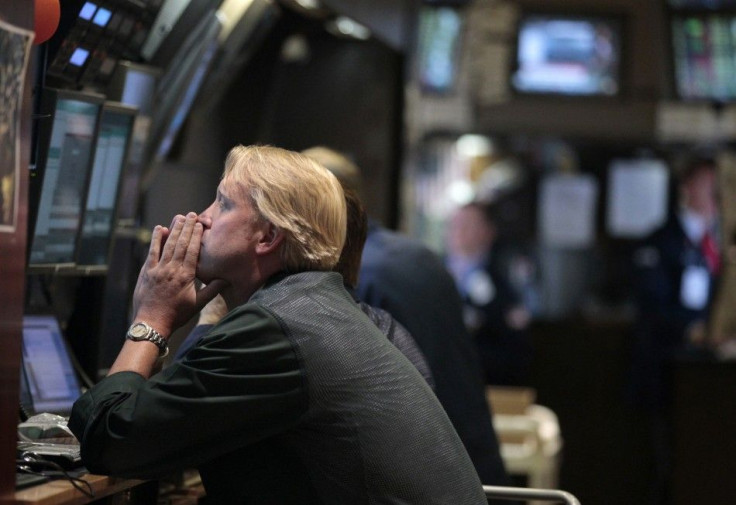Economy, Euro Zone Crisis Batter Stocks

World stocks sank for an eighth straight session of losses on Friday, with investors racked by worries about the slowing global economy and the dangerous spread of euro zone debt anguish into Italy and Spain.
There was widespread demand for policymakers to beef up plans to tackle the euro zone's crisis and prevent the U.S. economy in particular from sliding back into recession.
Global equities were down 1.5 percent on the day for a roughly 8.5 percent loss this week. Emerging market shares stumbled 3.3 percent .MSCIEF on the day.
The pan-European FTSEurofirst 300 .FTEU3 tumbled 2.3 percent.
It was part prompted by the worst sell-off overnight on Wall Street since the global financial crisis in 2008
Investors were also bracing for U.S. jobs data later in the day, a sensitive indicator at the best of times but a key gauge at the moment of the extent of the U.S. economy's troubles.
Positions in equities and commodities were being scrapped and a scramble for the safety of cash and top-rated government bonds was on.
"The economic outlook is stressing investors to a great degree and sentiment is likely to remain extremely fragile," said Keith Bowman, equity analyst at Hargreaves Lansdown.
"The U.S. economy has been slowing and is moving into a phase where we are going to see spending cuts enforced. Investors are concerned as to where future growth will come from with this backdrop of debt for so many governments."
China and Japan called for global cooperation and French President Nicolas Sarkozy was to meet to discuss the financial markets with German Chancellor Angela Merkel and Spanish Prime Minister Jose Luis Rodriguez Zapatero.
Apart from signs that the U.S. and global economy is weakening -- despite record low interest rates and the pumping of liquidity into the system -- the focus was clearly on Europe, where bond yields in Spain and Italy have been blowing out, threatening the same kind of refinancing problems that have already smitten Greece, Ireland and Portugal.
The European Central Bank disappointed investors on Thursday by buying Irish and Portuguese bonds but not Italian or Spanish.
"Would the ECB please get serious," Berenberg private bank said in a note. "We need a circuit breaker to stop the vicious circle in which fear feeds on fear."
INTERVENTION
The Swiss franc hit a record high against the euro but later fell back as nervous traders worried about intervention.
The yen edged higher and bounced away from a three-week low hit the previous day on Japan's massive yen-selling intervention, but concerns that the Japanese could intervene again limited the currency's gains.
The combination of concerns kept the dollar relatively steady against a basket of major currencies .DXY.
On bond markets, short-term core European government debt was in demand.
Italian 10-year government bond yields rose above their Spanish equivalent. Italy has emerged as the market's major concern after a rescue deal that was intended to stop the spread of the crisis failed to convince investors it had the firepower to ease pressure on the vast Italian bond market.
© Copyright Thomson Reuters 2024. All rights reserved.











